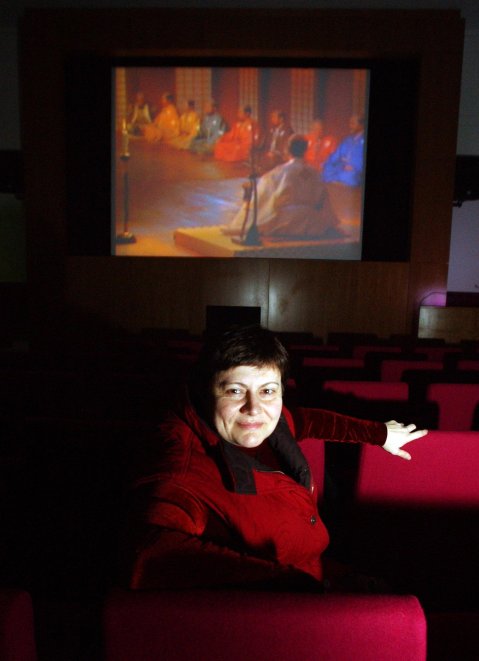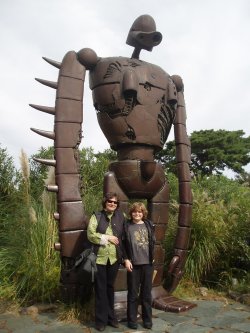|
Released: Thursday 24 July 2008, St Andrews, UK

From Bollywood to YouTube, an academic at the University of St Andrews is to investigate the ways in which non-mainstream film reaches the masses.
Professor Dina Iordanova, St Andrews' first Chair of Film Studies and a leading international authority in her field, will receive a prestigious grant from The Leverhulme Trust to carry out the study "Dynamics of World Cinema: Transnational Channels of Global Film Circulation".
The innovative project will examine the circulation of global cinema by comparing the four main channels: the system of global Hollywood, the international film festival circuit, various alternative production centres like Bollywood as well as internet-enabled channels such as YouTube.
Professor Iordanova said, "We know a lot about Holywood's global operation, and we have all sorts of box office data and charts on them. But we know next to nothing of the other side of the equation, of those films that are not in the blockbuster sphere, that are distributed via less visible channels but are still popular.
"In the course of our study, we will establish how much money non-Hollywood films actually make and are likely to reveal that they enjoy a growing domestic and international commercial success.
"The study will examine the phenomenal growth of film festivals around the world and will assess if they indeed have become an independent distribution circuit. We will also explore the film distribution for ethnic minorities (for example, Bollywood imports), and reveal that it is an operation of astonishing commercial success.
"Finally, we will also assess the impact that new internet-enabled channels such as YouTube, online forums and download sites, have on the changing dynamics in world cinema."
Professor Iordanova and her son George (12) at the Ghibli Museum in Tokyo in November 2007.

The £240,000 grant will allow Professor Iordanova to undertake the pioneering two and a half year investigation into the ways film travels nowadays to reach a growing and increasingly diverse community of viewers that are interested in getting more specific content than the blockbuster playing at the cinema around the corner.
She explained, "What makes us distinct in relation to earlier studies is that we will correlate all those diverse strands of film circulation that are extremely active nowadays but somehow remain below the radar. By putting all information into comparative perspective and by revealing patterns of interaction, we will show the real dynamics of world cinema. We expect to bring to the attention traditionally ignored aspects that will undermine the view of Hollywood's undisputed global dominance."
Originally from Bulgaria, and having worked in Canada, the US, and England, Professor Iordanova's background is in philosophy and aesthetics. Soon after acquiring her PhD in 1986, she realised she needed images to come along with the theoretical concepts. She made a profession out of her habit of seeing a movie a day, and switched to the new field of film studies in 1993. Today, she has numerous publications on in international cinema to her credit. She has recently edited a special issue of Film International dedicated to film festivals, and is now working on a book chapter about recent Asian epic cinema.
She continued, "This is a radically interdisciplinary project, which brings together transnational film and media studies, globalisation and diaspora studies, political economy and humanistic scholarship. Given the Trust's interest in major issues of contemporary culture, The Leverhulme was the best organization to fund it. We are truly grateful for their recognition."
Professor Stuart Cunningham from Queensland University of Technology in Brisbane, a leading specialist in the area of creative industries, is co-investigator on this unique and innovative project. He will spend a month in St Andrews during the second phase of the research. Two post-doctoral fellows, one from Hong Kong and the other one from New York City, are joining the team set to start work in October.
ENDS
|

